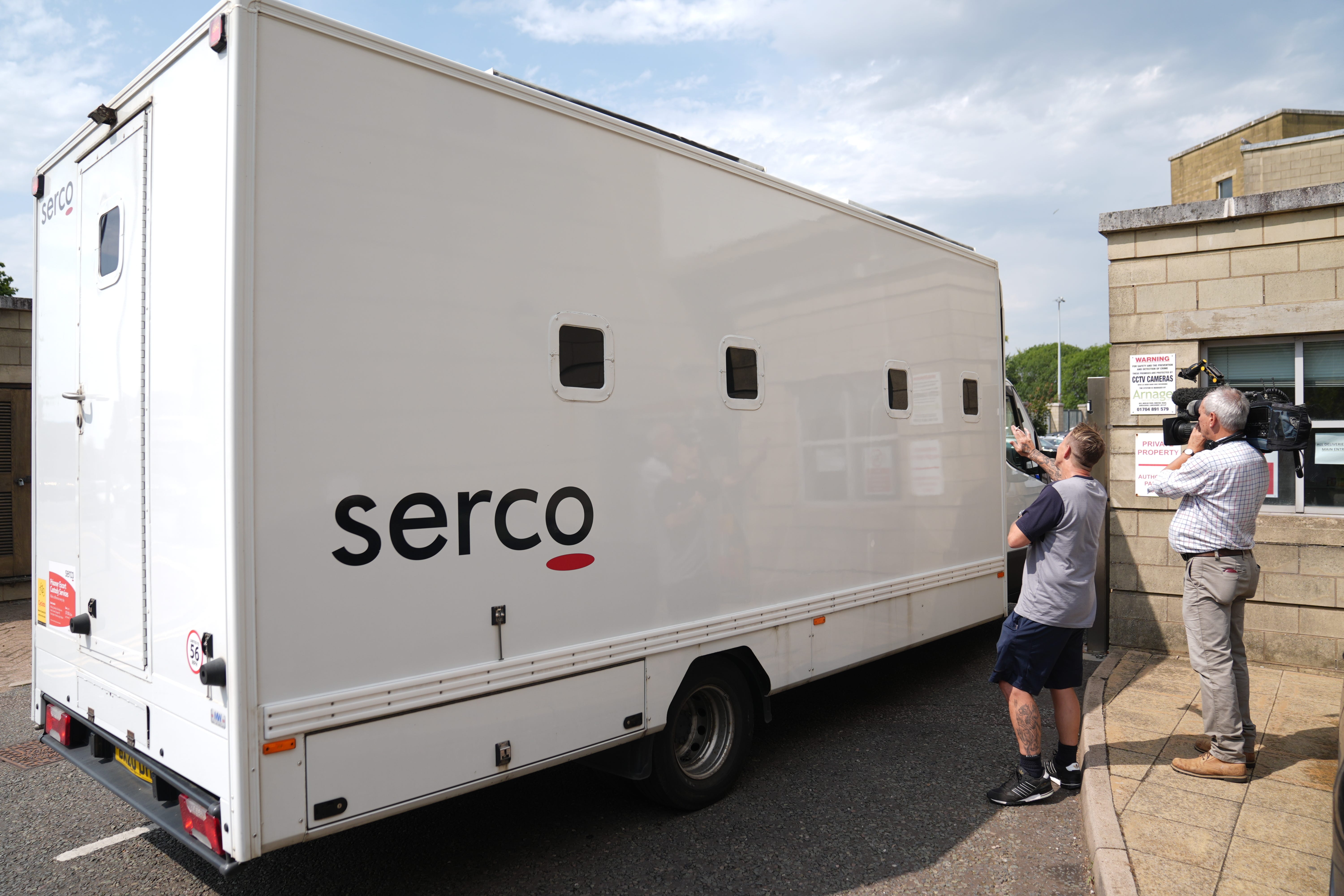Lucy Connolly's Appeal Against Racial Hatred Conviction Fails

Table of Contents
The Original Conviction and the Charges
Lucy Connolly faced a criminal conviction for racial hatred stemming from a series of alleged incidents. The charges included accusations of hate speech and discriminatory behavior, leading to a high-profile trial. Evidence presented during the initial trial included:
- Specific examples: Allegedly racially charged statements made online and in person, targeting specific ethnic groups. These included derogatory remarks and inflammatory comments intended to incite hatred.
- Key witnesses: Several individuals testified, recounting incidents where they were directly subjected to Connolly's alleged discriminatory behavior. Their testimonies provided crucial evidence for the prosecution.
- Judge's reasoning: The original judge's verdict emphasized the severity of the statements and actions, finding them to constitute hate speech under existing legislation concerning racial hatred and discrimination. The judge highlighted the intent to incite hatred and the impact on victims. The judge cited relevant case law regarding incitement to racial hatred.
The original conviction served as a stark reminder of the serious consequences of engaging in acts of racial hatred.
Grounds for Appeal and Legal Arguments
Connolly's legal team mounted a robust appeal, challenging the original conviction on several grounds. Their arguments focused on aspects of the appeal process, attempting to highlight procedural errors and challenge the interpretation of the laws relating to racial hatred. Key aspects of their appeal included:
- Challenges to evidence: The defense argued that some evidence presented during the initial trial was circumstantial or misinterpreted, questioning its relevance in establishing racial hatred.
- Legal interpretation: The appeal contested the legal interpretation of the relevant hate speech legislation, arguing that the original judgement misconstrued the intent and impact of the alleged actions. They sought judicial review of the application of existing laws.
- Procedural errors: Allegations of procedural errors during the original trial were presented as grounds for overturning the conviction. This included arguments related to the admissibility of certain evidence and the conduct of the prosecution. The legal representation focused on demonstrating flaws in the initial legal process.
These legal arguments formed the basis of the appeal process, aiming to persuade the appeals court to overturn the original conviction.
The Appeals Court's Decision and Reasoning
Despite the compelling arguments presented by the defense, the appeals court upheld the original conviction. The appeal was unsuccessful, confirming the initial judgement. The court's reasoning primarily focused on:
- Key points from the judgement: The appeals court judges highlighted the overwhelming evidence supporting the original conviction, emphasizing the weight of the testimonies and the clear intent to incite racial hatred.
- Dissenting opinions: While a unanimous decision was reached, the judgement did not include any dissenting opinions from the panel of judges.
- Assessment of evidence: The appeals court meticulously reviewed the evidence presented, concluding that it sufficiently supported the charge of racial hatred and provided substantial grounds for the original conviction. The court considered the evidence to be substantial and credible. The judgement set a strong legal precedent for future cases.
The court's decision firmly established the legal precedent concerning the application of racial hatred laws in similar circumstances.
Public Reaction and Wider Implications
The outcome of Lucy Connolly's Appeal Against Racial Hatred Conviction sparked considerable public debate and controversy.
- Anti-racism groups: Many anti-racism organizations expressed satisfaction with the upholding of the conviction, viewing it as a victory for combating discrimination and hate speech.
- Connolly's statements: Following the unsuccessful appeal, neither Lucy Connolly nor her representatives issued any public statements.
- Impact on hate crime legislation: The case has reinforced the legal ramifications of hate speech and highlighted the importance of robust legislation to address racial hatred and discrimination effectively. The ruling is expected to influence future prosecutions. The media coverage was extensive, fueling ongoing conversations about hate crime legislation. The significant media coverage surrounding the case underscored the public interest in the legal implications of racial hatred.
Conclusion: The Fallout from Lucy Connolly's Appeal Against Racial Hatred Conviction Fails
The failed appeal in Lucy Connolly's Appeal Against Racial Hatred Conviction underscores the seriousness with which the legal system treats offences related to racial hatred. The court's decision sets a significant legal precedent, clarifying the interpretation and application of relevant laws. This case highlights the ongoing need to combat racial hatred and discrimination in all its forms. To stay informed about racial hatred cases and learn more about combating racism, actively engage in initiatives that promote understanding and tolerance. Understanding the legal ramifications of hate speech is crucial in the fight against discrimination. Let's all work together to create a more equitable and inclusive society.

Featured Posts
-
 The Goldbergs Character Development And Lasting Appeal
May 22, 2025
The Goldbergs Character Development And Lasting Appeal
May 22, 2025 -
 Saskatchewan Political Panel Examining Western Separation
May 22, 2025
Saskatchewan Political Panel Examining Western Separation
May 22, 2025 -
 Cassis Blackcurrant Production And Regional Variations
May 22, 2025
Cassis Blackcurrant Production And Regional Variations
May 22, 2025 -
 New Record Fastest Trans Australia Foot Race
May 22, 2025
New Record Fastest Trans Australia Foot Race
May 22, 2025 -
 Air Travel Summer Outlook Airlines Facing Challenges Amidst Expected High Demand
May 22, 2025
Air Travel Summer Outlook Airlines Facing Challenges Amidst Expected High Demand
May 22, 2025
